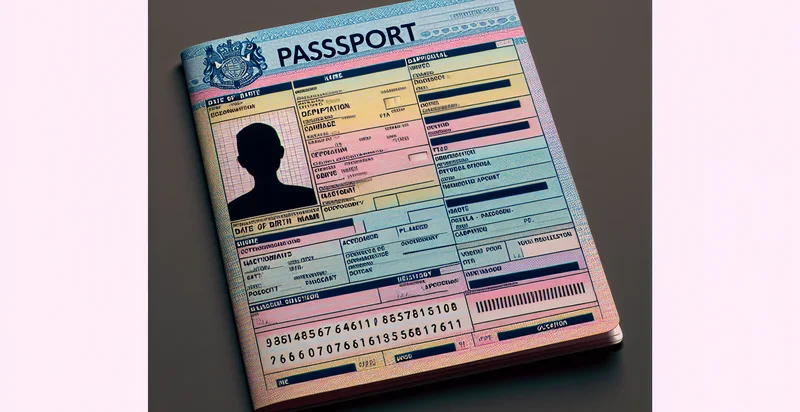Identify if passport number is in a database
using AI
Below is a free classifier to identify if passport number is in a database. Just input your text, and our AI will predict if the passport number exists in the database - in just seconds.

Contact us for API access
Or, use Nyckel to build highly-accurate custom classifiers in just minutes. No PhD required.
Get started
import nyckel
credentials = nyckel.Credentials("YOUR_CLIENT_ID", "YOUR_CLIENT_SECRET")
nyckel.invoke("if-passport-number-is-in-a-database", "your_text_here", credentials)
fetch('https://www.nyckel.com/v1/functions/if-passport-number-is-in-a-database/invoke', {
method: 'POST',
headers: {
'Authorization': 'Bearer ' + 'YOUR_BEARER_TOKEN',
'Content-Type': 'application/json',
},
body: JSON.stringify(
{"data": "your_text_here"}
)
})
.then(response => response.json())
.then(data => console.log(data));
curl -X POST \
-H "Content-Type: application/json" \
-H "Authorization: Bearer YOUR_BEARER_TOKEN" \
-d '{"data": "your_text_here"}' \
https://www.nyckel.com/v1/functions/if-passport-number-is-in-a-database/invoke
How this classifier works
To start, input the text that you'd like analyzed. Our AI tool will then predict if the passport number exists in the database.
This pretrained text model uses a Nyckel-created dataset and has 2 labels, including Passport Number Found and Passport Number Not Found.
We'll also show a confidence score (the higher the number, the more confident the AI model is around if the passport number exists in the database).
Whether you're just curious or building if passport number is in a database detection into your application, we hope our classifier proves helpful.
Related Classifiers
Need to identify if passport number is in a database at scale?
Get API or Zapier access to this classifier for free. It's perfect for:
- Fraud Detection in Banking: Financial institutions can leverage the passport number identification function to verify the identities of customers during account openings or loan applications. By cross-referencing the provided passport number with their database, banks can minimize the risk of fraudulent activities such as identity theft.
- Travel Authorization for Airlines: Airlines can utilize this function to streamline the check-in process by verifying passengers' identity through their passport numbers. This helps to enhance security and ensure that only authorized individuals are allowed to board flights, thereby reducing the risk of security breaches.
- Border Control Automation: Immigration and border control agencies can integrate this function into their systems to quickly validate travelers' identities against a national database. This automation helps to speed up processing times, reduce queues at borders, and improve the overall efficiency of border security operations.
- Enhanced Customer Verification for E-commerce: E-commerce platforms can implement this functionality to improve customer authentication during high-value transactions. By validating passport numbers provided by customers, platforms can build trust and mitigate risks associated with online fraud and chargebacks.
- Identity Verification for Employment: Human resource departments can use this function to validate applicants' identities by cross-referencing passport numbers with official records. This ensures that applicants are who they claim to be, reducing the risk of hiring fraud and boosting compliance with legal requirements.
- Insurance Claim Processing: Insurance companies can apply this identification function in their claim processing procedures to validate the identity of claimants. By checking passport numbers against their databases, insurers can confirm the legitimacy of claims and prevent fraudulent activities.
- Membership Verification for Clubs and Organizations: Clubs or membership organizations can implement this service to verify the identities of new applicants through their passport numbers. By having a firm identification process, organizations can maintain the integrity of their memberships and ensure that benefits are only extended to eligible individuals.


